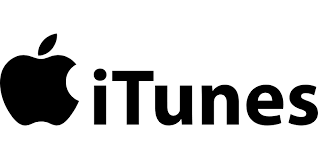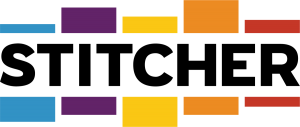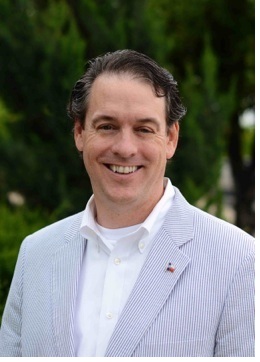Also Available On
 |
 |
 |
 |
Show Summary
Ed Kless joins Mike Michalowicz, Chris Curran, and Ron Saharyan to discuss how to improve the growth of your business beyond the use technology. Welcome to Episode 14 of the Grow My Accounting Practice Podcast!
Our Guest
Ed Kless joined Sage in July of 2003 and is currently the senior director of partner development and strategy. He develops and delivers curriculum for Sage business partners on the art and practice of small business consulting including the Sage Consulting Academy, Business Strategy and Customer Experience Workshops. He also facilitated the Sage Leadership Academy, a year-long program designed to assist Sage Software partners develop a continuous process of improvement in their organizations and serves as liaison to the Strategic Leadership Association.
Ed is the author of The Soul of Enterprise: Dialogues on Business in the Knowledge Economy, a compendium of a few of the episodes of his VoiceAmerica talk-show The Soul of Enterprise: Business in the Knowledge Economy with Ron Baker, founder of the VeraSage Institute where Ed is also a senior fellow.
Prior to joining Sage, Ed worked with Tipping Point Advisors, an organization dedicated to the growth and development of software implementation partners. In 1996, he co-founded Third Wave Business Systems, a Microsoft Dynamics GP partner that grew to 20 team members and $5 million in revenue. At Third Wave, Ed developed the implementation methodology and led the CRM and ERP consulting teams.
Ed is a contributor to industry publications, including the Journal of Accountancy, Harvard Business Review and HR.com, and has spoken at many conferences worldwide on project management, pricing, and knowledge workers. He is also active in the Information Technology Alliance (ITA) and was named to Accounting Today’s list of the 100 Most Influential People in Accounting for 2015. He lives north of Dallas with his wife and two children and ran for Texas State Senate in 2010 and 2012 as a Libertarian.
Show Quotes
“Disruptive threats come inherently not from new technology but from new business models “- Andy Grove
A business model will change mostly because of changes in language.
“All transformation is linguistic; if we want to change our culture we need to change our conversation.” – Werner Erhard
Client vs. Customer
In literal terms, the word “client” is derivative of a roman word cliens which means “to lean”. Back then these people were the one’s who roman lawyers had to defend. Contrast that with the word “customer” originating from the word custom meaning it was a regular cadence. If you start using the word customer, even internally, your outlook on your “client” base will transition from having to fix them once a year to looking forward engaging with them.
Training vs. Education
Horses and dogs are trained; human beings are educated (aside from potty training).
To train someone is to pump information into them. To educate is to draw out information from someone. The information is already there, they just need guidance to find it. Re-word your product training services to product education.
If you compare the phrase “Let’s round up the staff for a meeting” vs. “Let’s round up the team for a meeting”, do you hear the different affect each word has? Different words conjure up different images in peoples minds. When you use different words you feel different. When you feel different, you act different.
We don’t want to pay a fee, we want to pay a price.
Don’t be so exact with your pricing – to do so cheapens your quality. Don’t charge $29 or $34.95, charge $30 or $35.
A few words to avoid:
-Discount. Talk about a preferred price or promotional price.
-Service. Professionals don’t sell services, they sell results, knowledge, judgement, and access. These are much better words to describe the end product of what a Professional offers.
-Efficiency – the better term that professionals work in is effectiveness. If you have brain cancer do you want your surgeon to be efficient or effective?
The Psychology of the sale: Better Discovery Questions
Many people are discussing making the change from hourly to value, but not just in pricing; everything you do in your firm should be demonstrating your value and the benefits of working with you. What questions should we be asking our customers that raise our value?
When you have a discovery question, you don’t want to get too granular. You want to talk to the business owner and find out how their business performed last year. Did they achieve their goals? Did the business make enough money? Did the business owner make enough money?
As you’re learning about the past you want to also transition into what they want to achieve in the future. Based upon their answer you may want to dig a little deeper… do they want to increase their profitability? Their efficiencies? Customers? Product services? Retention? Market share? This opens the conversation.
Next you want to find out what they want to reduce. It’s not always just cost; it could be time, effort, turnover, complaints, conflicts, risks. Then you need to find out if they have what they need in order to achieve these goals. Do they have the right systems, processes, and strategies in place?
By having these higher level conversations you will be able to understand where the customer is coming from while adding more value to the overall positioning of you and your firm.
GMAP Now Task
It’s all in the linguistics. Stop calling yourself an Accountant or a Bookkeeper. Why? Because those terms fall into the pre-defined generic definition of what the customer knows or thinks an Accountant or Bookkeeper is. They will then only look at you to see if you are a cheaper alternative. Come up with a unique, distinct term that automatically breaks you out of the generic label. One of our terms at Profit First Professionals is a Profit Advisor. Now they can’t put you in a generic box with your competition! They will naturally react and want to learn more about what you do. Then you tell them that you have special skills and tools to drive profitability in there business, and that you are an excellent Accountant/Bookkeeper, but you should expect that from any Accountant/Bookkeeper.
Show Links
Follow Ed on his blog at www.edkless.com or on Twitter @edkless.
Corporate Partners
Nextiva – VOIP phone providers for small businesses.
Fundera – Single source online funding for entrepreneurs. Also offers an adviser program for CPAs, bookkeepers and business coaches.
TSheets – The #1 customer rated time tracking solution!
Fundbox – the simplest and fastest way to fix your cash flow by advancing payments for your outstanding invoices.
Podcast: Play in new window | Download




Comments